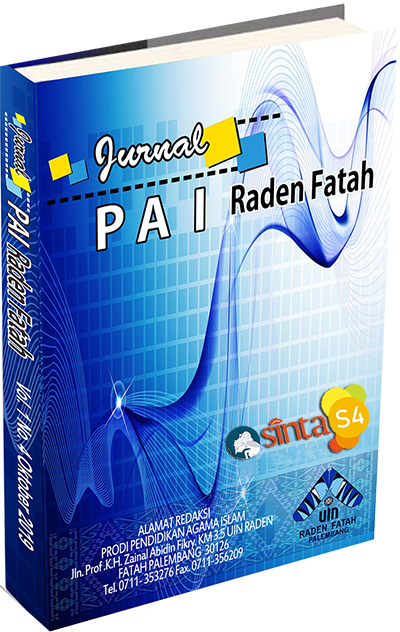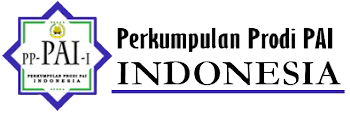Kontribusi Alumni Prodi Pai Dalam Menyongsong Bonus Demografi Bagi Masyarakat Di Era Revolusi Industri 4.0
DOI:
https://doi.org/10.19109/pairf.v7i1.24847Keywords:
Demographic, Industrial Revolution, Era 4.0Abstract
This article discusses the role of Alumni of the PAI Study Program in preparing for the demographic bonus in the era of the Industrial Revolution 4.0. This research uses a qualitative descriptive method, aiming to analyze the contributions of PAI alumni in addressing the opportunities and challenges posed by the demographic shift. The research results show that PAI alumni play a role in shaping religious perspectives, motivating social change, and adapting to industrial transformations. However, challenges remain, such as the need for balanced time management, frequent policy adjustments, and alignment with technological advancements. The implementation of Islamic Religious Education (PAI) in the community is influenced by several structural, substantive, and cultural factors. Structurally, the effectiveness of alumni contributions depends on the availability of competent guidance personnel. Substantively, the alignment of educational policies with contemporary societal needs affects implementation. Culturally, the support of families and communities enhances the impact of alumni efforts. Addressing these factors collectively fosters a more holistic approach to religious education in the era of Industry 4.0. The success of alumni contributions is also supported by active participation from parents, families, and communities. By ensuring a collaborative effort in religious education, the role of PAI alumni in optimizing the demographic bonus can be more effective and sustainable.
References
Akmal, Fachrurrozy. “PENOLOGI PENGAYOMAN.” Khatulistiwa Law Review Vol. 1, no. 1 (2020): 39–60.
Arifin, Muhammad. Ilmu Pendidikan Islam: Tinjauan Teoritis Dan Praktis Berdasarkan Pendekatan Interdisipliner. Jakarta: Bumi Aksara, 2023.
Asmadi, Erwin. “Perlindungan Hukum Bagi Anak Sebagai Saksi Dalam Pemeriksaan Perkara Pidana.” Iuris Studia: Jurnal Kajian Hukum Vol. 1, no. 2 (2020): 51–60.
Darmadji, Ahmad. “Pondok Pesantren Dan Deradikalisasi Islam Di Indonesia.” Millah 11, no. 1 (2011): 235–52. https://doi.org/10.20885/millah.vol11.iss1.art12.
Hanafi, Hanafi. “Konsep Pengertian Anak Dalam Hukum Positif Dan Hukum Adat.” VOICE JUSTISIA: Jurnal Hukum Dan Keadilan Vol. 6, no. 2 (2022): 25–35.
M. I. D. James Sinurat. “Pengembangan Moral & Keagaman Anak Usia Dini” 5, no. 3 (2020).
Pratiwi, Firda. “Pendidikan Anak Menurut Zakiah Daradjat.” POTENSIA: Jurnal Kependidikan Islam Vol 4, no. 1 (2018): 46–62.
Sobri, Rachmad. “Politik Dan Kebijakan: Pendidikan Agama Dan Keagamaan Di Indonesia (Analisis Kebijakan PP No 55 Tahun 2007).” Edukasi Islami: Jurnal Pendidikan Islam Vol. 8, no. 1 (2019): 109–124.
Syarnubi. “Hakikat Evaluasi Dalam Pendidikan Islam.” Jurnal PAI Raden Fatah Vol. 5, no. 2 (2023): 468–486. https://doi.org/10.19109/pairf.v5i2.
Syarnubi, Syarnubi. “‘Pendidikan Karakter Pada Madrasah Aliyah Negeri 3 Palembang.’” PhD Diss., UIN Reden Fatah Palembang, 2020.
Syarnubi Syarnubi. “Penerapan Paradigma Integrasi-Interkoneksi Dalam Peningkatan Mutu Lulusan.” Jurnal PAI Raden Fatah Vol. 4, no. 4 (2022): 375–395.
Wahidin, Unang. “Implementasi Literasi Media Dalam Proses Pembelajaran Pendidikan Agama Islam Dan Budi Pekerti.” Edukasi Islami: Jurnal Pendidikan Islam Vol. 7, no. 2 (2018): 229–244.
Waluyo, Bambang. Sistem Pemasyarakatan Di Indonesia. Sinar Grafika, 2023.
Yanti, Novia, Nursyamsi Nursyamsi. “Pendidikan Islam Dalam Sistem Pendidikan Nasional: Telaah Mengenai UU NO. 20 Tahun 2003 Tentang Sistem Pendidikan Nasional Dan PP NO. 55 Tahun 2007 Tentang Pendidikan Agama Dan Keagamaan.” Mauizhah: Jurnal Kajian Keislaman Vol. 10, no. 1 (2020): 139-170.












.png)


1.png)



